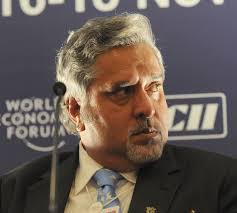Vijay Mallya: Legal Challenges and Implications

Introduction
Vijay Mallya, the Indian businessman and former member of Parliament, has been in the headlines for several years
due to his legal troubles stemming from financial irregularities and alleged fraud. His case has not only drawn significant media attention but has also raised important questions surrounding corporate accountability and the legal systems in both India and the UK.
The Timeline of Events
Mallya is best known for his role in Kingfisher Airlines, which became emblematic of the financial crisis in India as it defaulted on loans amounting to around $1.5 billion. In 2016, after the airline shut down, Mallya fled India to avoid prosecution, prompting the Indian government to seek his extradition based on allegations of financial fraud and money laundering.
In December 2018, a UK court ruled in favor of extraditing him to India, but Mallya’s legal team contested this ruling, leading to an extended legal battle. In 2020, he lost a final appeal against his extradition, reaffirming the seriousness of the charges against him.
Recent Developments
As of October 2023, Vijay Mallya remains in the UK while Indian authorities continue to pursue the recovery of the dues owed by him. The Indian Enforcement Directorate (ED) is actively working to locate and seize Mallya’s assets, estimated to be worth several billion rupees. Reports indicate that the ED has made headway in freezing significant portions of his wealth, but the complete recovery remains a complex issue.
Furthermore, Mallya’s ongoing situation highlights the broader implications for corporate governance in India. Many argue that his case exemplifies a lack of accountability among corporate leaders, raising concerns about regulatory loopholes that allow such financial misconduct to occur.
Conclusion
The case of Vijay Mallya is far from resolved, but it serves as a critical reminder of the importance of responsible corporate governance and the rule of law. As developments unfold, Mallya’s legal battles are likely to remain a focal point in discussions surrounding economic reforms and financial regulation in India. The continued efforts by the Indian government to hold him accountable emphasizes a growing demand for transparency and fairness in the business landscape.








